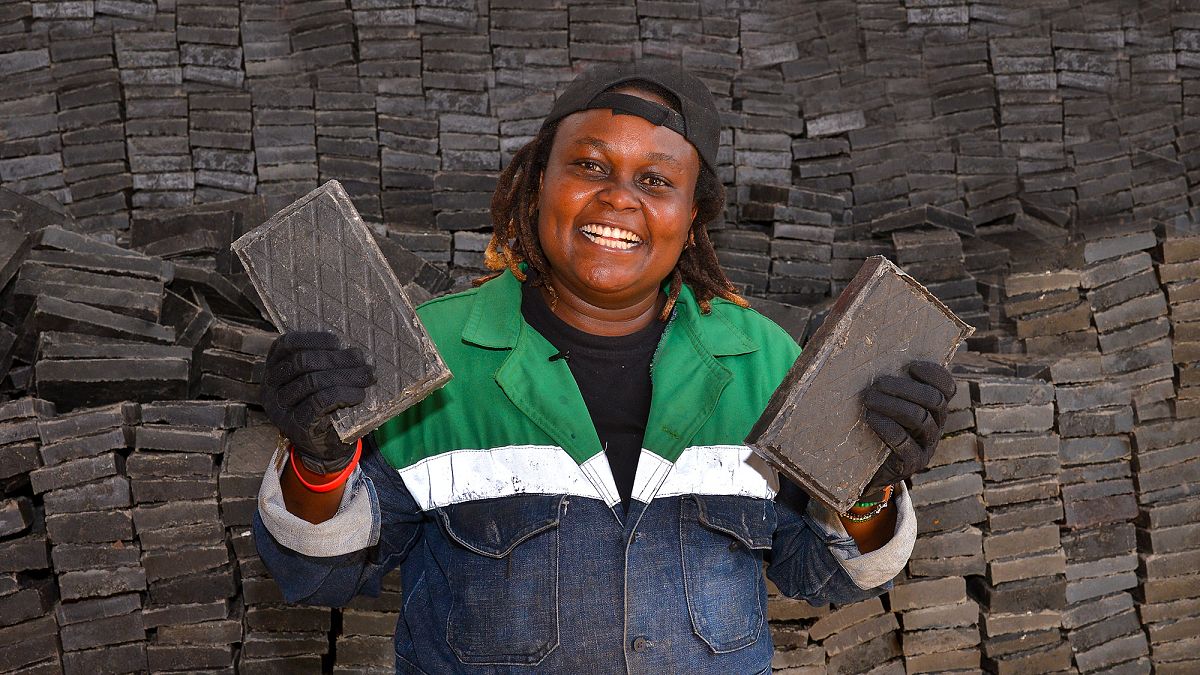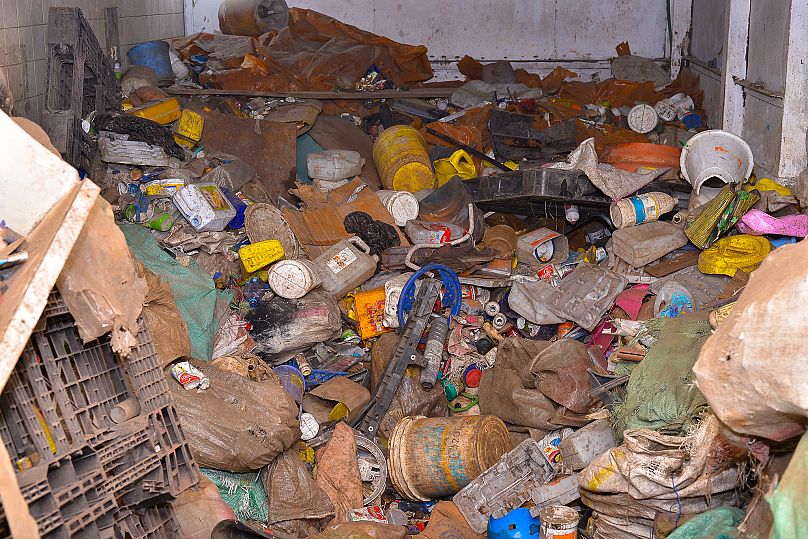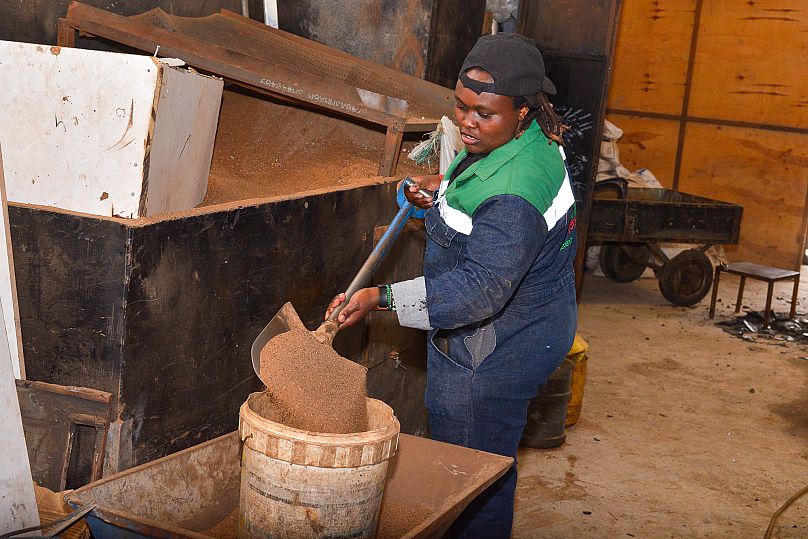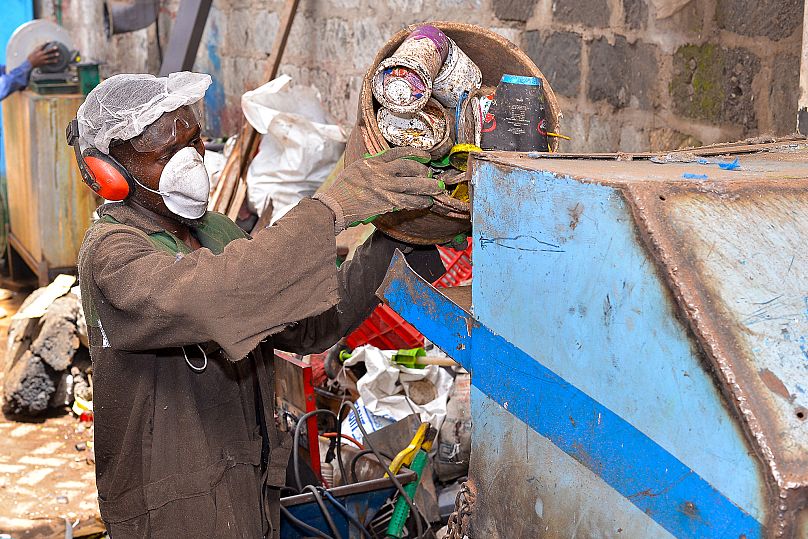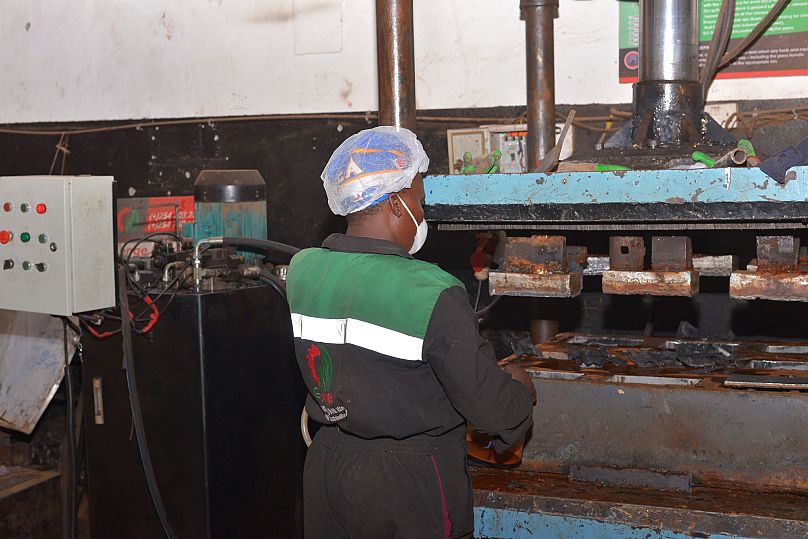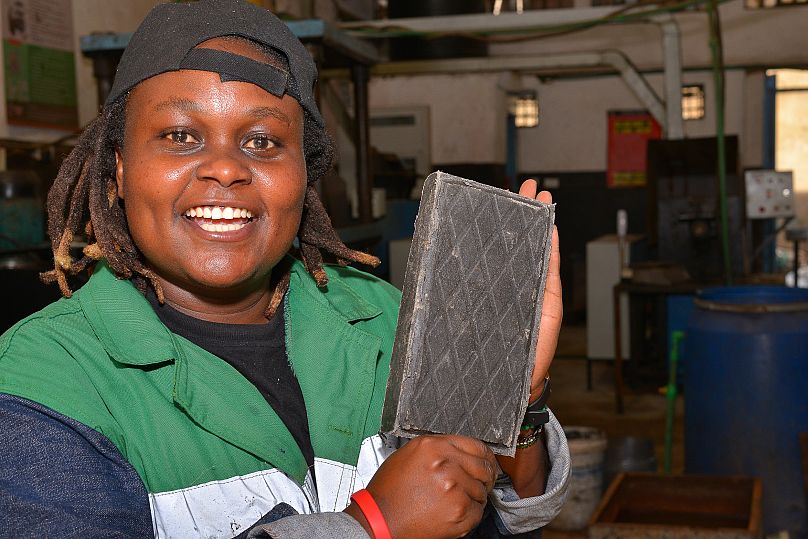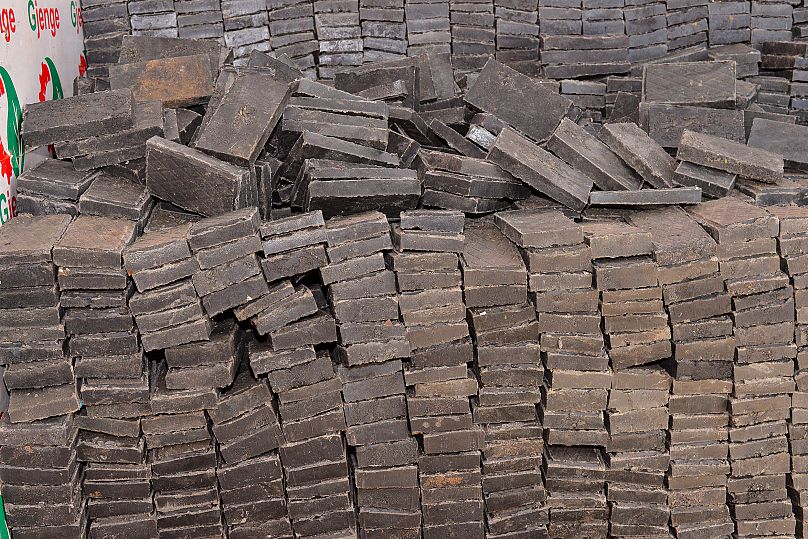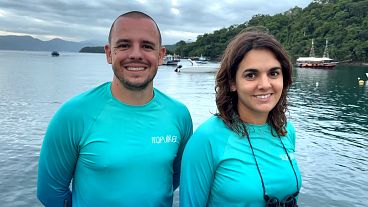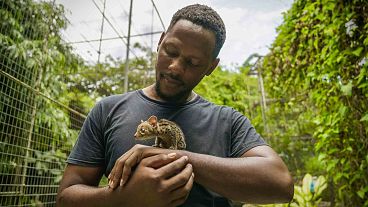"After taking that plastic waste, you can make roads. And if a kid can go to school and arrive on time through the roads I build, I'm happy."
SCENES shines a spotlight on youth around the world that are breaking down barriers and creating change. The character-driven short films will inspire and amaze, as these young change-makers tell their remarkable stories.
Plastic waste is a global problem. From the depths of the oceans to the tops of mountains, the problem affects ecosystems, wildlife, and even human health. Waste carelessly left behind can take up to 500 years to decompose.
According to the OECD, only nine per cent of the world's plastic waste is recycled. But one female entrepreneur in Kenya is determined to tackle the problem by finding a better use for discarded plastic.
Nzambi Matee founded Gjenge Makers, a company that recycles plastic waste into alternative building blocks.
Converting plastic to bricks
"Using my material science and engineering background, I was like, how can we figure out a way to convert this plastic into something else?" Nzambi tells SCENES,
"We decided to enter building space because building is a basic human need. And so that's how we ended up converting plastic into building blocks," she explains.
Gjenge recycles between 10 and 25 metric tonnes of plastic waste every week. The company then combines the recycled plastic with sand to form a mixture which is moulded into paving bricks.
"After taking that plastic waste, you can make roads. And if a kid can go to school and arrive on time through the roads I build, I'm happy," says Nzambi.
The eco-entrepreneur believes that plastic is an essential resource. Nzambi says it impacts almost every business sector, from logistics to consumer goods and services.
"We thought of this amazing material," she explains, "but we didn't think of the repercussions. We didn't think about the afterlife, especially of single-use plastic."
According to the UN Environment Programme, one million plastic bottles are brought across the globe in a single minute. Most of these could be but are not recycled.
Mechanical recycling
There are two methods of recycling plastic waste.
Chemical recycling refers to any technology which uses chemical agents to alter the chemistry of the plastic, like turning plastic into oil.
The second method is mechanical recycling and is the one Gjenge uses, which is much more cost-effective for a developing economy like Kenya.
There are several stages to Gjenge's mechanical recycling.
Pre-processing includes the sourcing and collection of plastic waste. The waste is cleaned, shredded, and separated into different plastic types.
The processing stage involves the mixing of waste plastic with sand and glass. Colour can also be added at this stage in the process.
Nzambi explains the final stage. "A hydraulic press breaks the mixture into different shapes and sizes depending on whatever block you're making,"
"And then it's moved to the cooling bath, where we reduce the temperatures to room temperature," she adds.
Once the blocks are cool, they are ready to be laid. Nzambi says that her paving blocks are stronger and cheaper than concrete.
So far, Gjenge has created products for roads, children's homes, and garden spaces across Kenya.
Entrepreneurial spirit
Creating building blocks out of plastic waste wasn't in Nzambi's business plan.
She was initially going to open a plastics collection company that would sort and sell plastic waste to other recycling companies.
However, Nzambi realised Gjenge was collecting waste faster than the recycling companies could uptake. So she decided to use her engineering background and pivot to create sustainable alternative construction products.
Now, Gjenge has become a trailblazer in the industry.
Sales executive John Luca is proud of their products: "I admire the product's strength. It is waterproof. When we put the colour on the products, it makes a place beautiful."
As a young female leading a successful business, Nzambi inspires her colleagues and peers.
"Nzambi is an inspiration because she's in a male-dominated field, and she's always determined to get the job done," says Gjenge's Operations Manager, Peter Kimani.
"So, it's a motivation to everyone who works at the company," he adds.
A sustainable future
Gjenge has been so well received that the supply of goods is currently outstripping their demand.
"We can produce about 3,000 pavers daily, but our demand is about 10,000 per day. We have more demand than we can supply." Nzambi explains.
In the future, Gjenge plans to move into 3D technology. "The idea is to make different moulds to make different shapes and products," says Nzambi. "We want to automate some processes to increase the production capacity."
Gjenge also plans to help the community by promoting upcycling, recycling culture, and providing jobs for young people across the African continent.
"I'm happy to say we have one hundred and twenty-three families benefiting from this process," Nzambi says.
Looking long-term, the young entrepreneur plans to use her skills to train the next generation. She hopes this kind of recycling – turning plastic waste into vital resources – is a model every country will eventually adopt.

